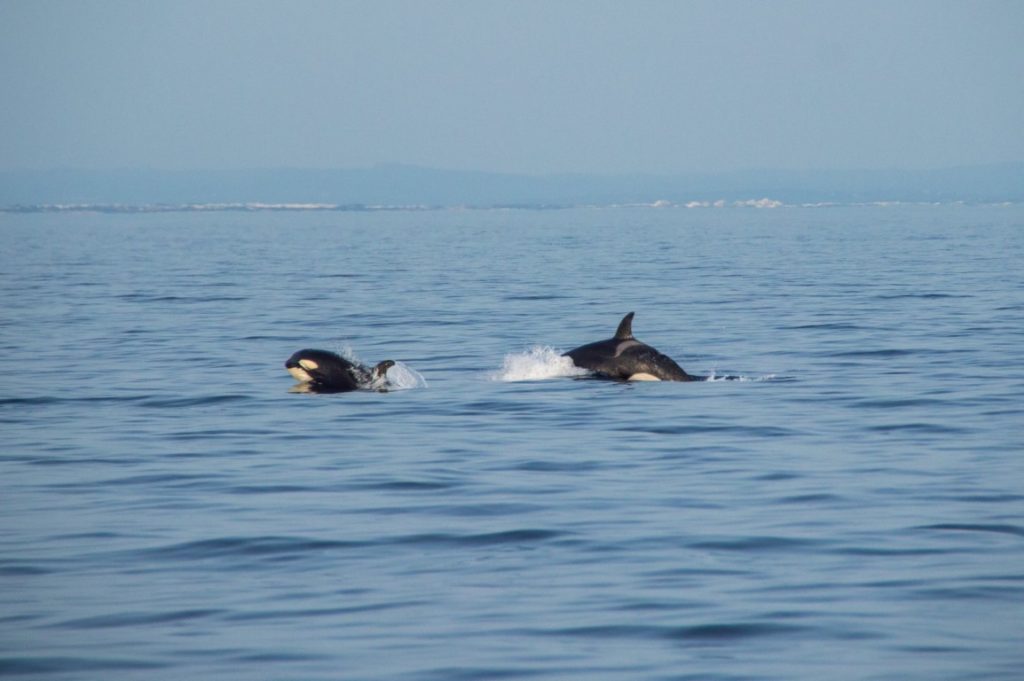A new acoustic device to dissuade killer whales from interacting and putting recreational sailboats at risk will be tested this summer off the Portuguese coast, at a time when several navigators are already avoiding national waters.
«Some lines of development of acoustic bollards are being developed that will be tested this summer, in order to try to find options for protecting sailboats and minimize the number of interactions», the president of the National Association of Cruise Ships (ANC) told Lusa. Antonio Bessa de Carvalho.
The Portuguese Navy, the Institute for the Conservation of Nature and Forests (ICNF) and the ANC have held meetings since March to try to find a solution to these interactions between orcas and sailboats up to 15 meters – still without explanation -, and which have already led to the sinking. of at least two vessels.
The first cases of interactions on the Portuguese coast were recorded in 2020, when some younger killer whales started interacting with vessels, mainly sailboats, although there have also been some cases with fishing and inflatable vessels.
«Sailboat owners are very concerned and are currently afraid to take their boats to the Algarve, as they do every year», guarantees the president of the ANC.
Bessa de Carvalho also mentioned the case of «many foreigners who avoid Portuguese waters» and, coming from northern Europe, go directly to Madeira and the Canary Islands, avoiding going down the west coast of the country.
«We hope that this joint work will be fruitful and manage to develop a device that allows to protect the vessels and the group of orcas», said the official.
According to the Orca Atlântica Working Group (GTOA) website, since the beginning of the year, there have been dozens of "interactions with physical contact" between boats and killer whales, mainly on the coast of Andalusia (Spain) from Cádiz to the Straits of Gibraltar.
In Portugal, there were, during the same period, six of these «interactions with physical contact», all several miles from the coast: one off Peniche, three off Cabo de Espichel, one off Melides and three south of Faro.
These animals are mainly attracted to the rudder of vessels and, in some cases, the interactions caused serious damage that prevented the boats from sailing, as they were unable to set a course.
"It is not yet known why orcas have interacted with vessels, what we do know is that they have interacted mainly with the rudder of sailboats, which is a relatively fragile structure on these vessels," marine biologist Rui Peres dos Santos explained to Lusa. .
According to the researcher, a doctoral student at the Center for Marine Sciences (CCMAR) at the University of Algarve (UAlg), «sailboats have been the main target of interactions and those that have shown the most damage, although there have already been interactions with fishing boats and of whale watching'.
Questioned by Lusa about whether these interactions could pose any risk to bathers, Rui Peres dos Santos said that, to date, there has been no record of any interaction with people in the water, whether swimming near the boats or on the beach, so that danger will be, in principle, non-existent.
These animals are cetaceans of the dolphin family, feeding mainly on Atlantic bluefin tuna. Despite having teeth, according to the GTOA, they never eat cetaceans or other marine mammals.
The commander of the Maritime Zone of the South Rui Santos Pereira says that there is no "direct" danger to people, there is only concern that the interaction leads to the rudder breaking and the boat sinking.
In the case of bathers, the captain of the Port of Faro agrees that orcas "do not attack", maintaining that there is no danger.
According to reports cited by the GTOA, the orcas "touched, pushed and even turned" the course of the vessels, which in some cases suffered damage to their rudder.
According to information from various entities, in the event of sighting orcas, vessels should, if possible, slow down and stop the engine, stop exerting pressure on the rudder (leave it loose) and wait for the animals to move away.
The Iberian killer whale is a subpopulation of killer whales that lives in the northeast Atlantic, usually ranging from the west coast of Galicia (Spain) to the Strait of Gibraltar, which includes the entire Portuguese coast.
The length of the Iberian orcas adults is between five and six meters, a small size compared to other killer whales, such as the Antarctic ones that reach nine meters.



















Comments